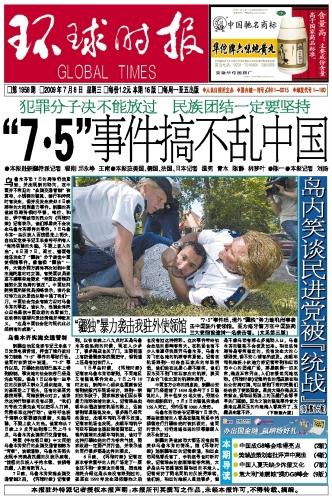极端天气

句子:今年极端天气发生得比往年频繁。
误译: Extreme weather has occurred more frequent this year than previous years.
正译:Extreme weather has occurred more often/frequently this year than previous years.
解释:frequent 是形容词,不能修饰动词。需要用表示时间频度的副词often 或frequently修饰动词occur。
“极端”的第一个意思是“事物顺着某个发展方向达到的顶点”,是个名词,译为 extreme。例如:1. 我们要全面地看问题,不要走极端。We must look at an issue in an overall way, and mustnt go to extremes.
“极端”的第二个意思是“偏激”、“绝对”或“彻头彻尾”,是形容词,译为 extreme。例如:2. 自学能力对一个学生极端重要。Self-taught ability is of extreme importance to a student.
“极端”的第三个意思是表示程度极深,相当于“极其”或“非常”,是副词,译为extremely, exceedingly。例如:3. 这位经济分析师认为试图救助楼市是极端愚蠢的行为。The economic analyst holds that trying to save the real estate market is an exceedingly foolish act.
“极端”的第四个意思是“极其不正常”,是形容词,译为 extreme。例如:4. 我国许多地方最近经历了极端天气状况,包括热浪、暴风雨和洪水。Many places of our country have recently experienced extreme weather conditions including heatwaves, storms and floods.▲
(本栏目供稿:王逢鑫教授)

